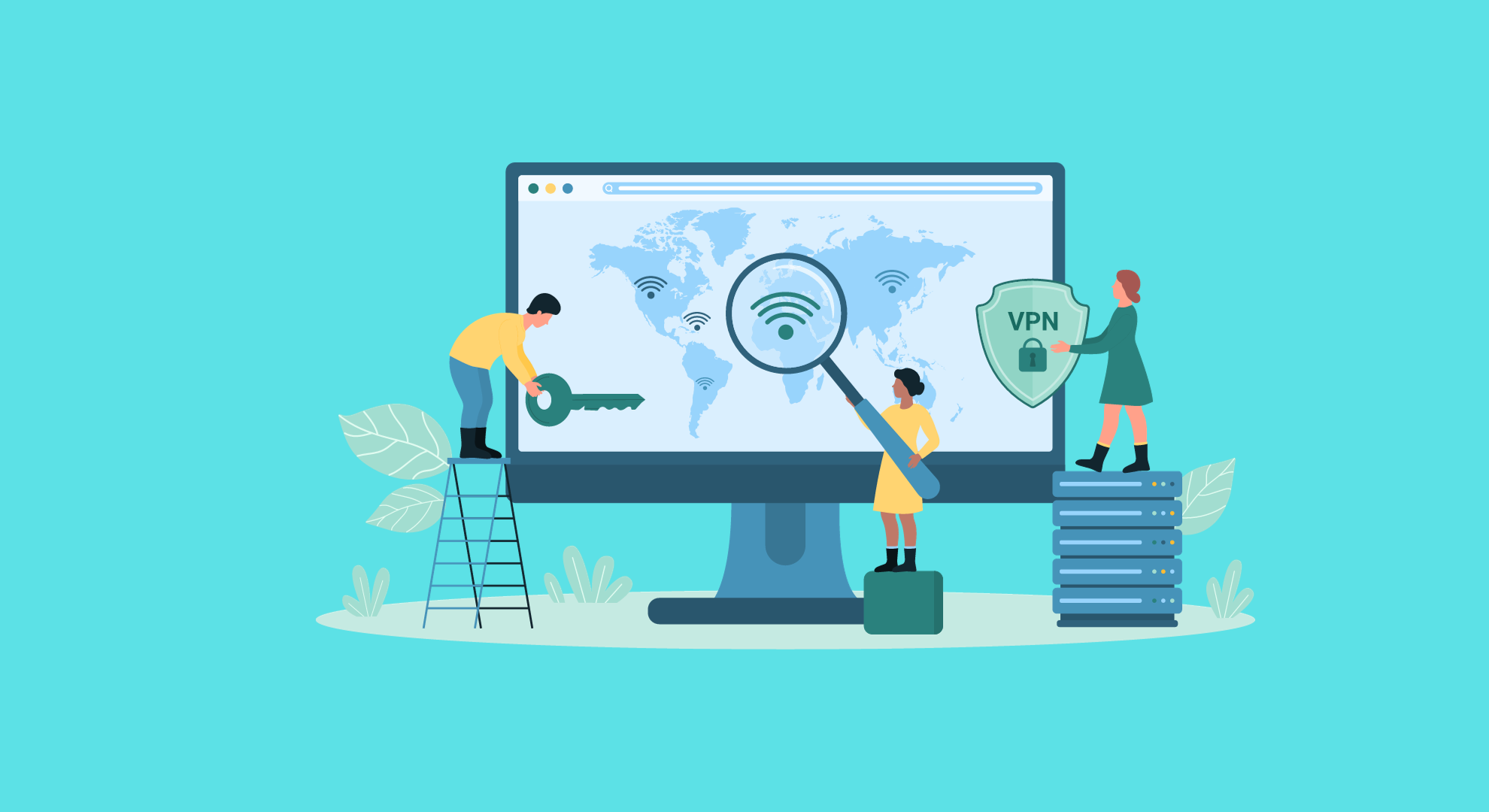
- Which countries currently have a ban on VPN usage?
- Enforcing Bans on VPNs for Cybersecurity
- A Global Exploration of Legal Frameworks
- Legal Considerations of Streaming with VPNs
- Consequences and Risks of Illegal Usage
- Legal Perspectives on VPNs and Internet Censorship
- What are the legal considerations when using a VPN?
- Are there specific laws or regulations governing VPN usage in different countries?
Maintain online privacy and security with vital VPNs that conceal your IP address and channel internet traffic through encrypted connections to VPN servers, ensuring anonymity. Assessing VPN legality is crucial across countries, as while most nations permit usage, some impose restrictions or bans. Stay informed about countries supporting VPNs and be mindful of limitations in regions with restricted online freedom for well-informed choices.
Which countries currently have a ban on VPN usage?
In North Korea, Belarus, Oman, Iraq, and Turkmenistan, authorities strictly prohibit VPN usage. Conversely, in China, Russia, Türkiye, UAE, India, Iran, Egypt, and Uganda, only government-approved VPNs are legal. However, it’s crucial to note that using these authorized VPNs may jeopardize user privacy, as authorities can monitor online activities. Due to this compromise, these countries are categorized as part of the list where VPN usage is considered illegal.
Explore the legal and prohibited landscape of VPN usage in different countries to ensure informed and secure online practices.
Russia
In 2019, Russia intensified its control over VPN usage, as Roskomnadzor, the federal service for supervision of communications, mandated leading VPN providers to grant the Russian government access to their in-country servers. Privacy advocates and VPN users expressed concerns about the potential compromise of personal data and online activities.
Simultaneously, Russia prohibited VPNs for accessing blocked content, reinforcing the government’s control on information flow. While these regulations aimed to restrict access to specific websites and online content, using a VPN for other purposes remained legal.
China
China enforces strict measures to block and filter online services that do not comply with its VPN laws and regulations, complicating the use of high-quality VPN services within the country. It’s worth noting that reports of foreigners facing significant issues while using VPNs in China are relatively uncommon.
NordVPN stands out as an excellent choice for VPN use in China, featuring an obfuscated servers function that disguises VPN usage. This makes it challenging for authorities to detect and restrict connections based solely on VPN usage.
Türkiye
Türkiye enforces restrictions on VPN usage to control its online landscape. Although VPNs themselves are not illegal, the government imposes blocks on specific VPN providers. This limitation impacts individuals seeking enhanced online privacy and access to geo-restricted content.
Belarus
The ban on VPNs and the Tor network in Belarus aims to curb online privacy measures. The government views these technologies as threats to its regime and employs strict regulations to control and monitor internet traffic within the country.
United Arab Emirates
Users may face significant penalties, including substantial fines, if authorities catch them using a VPN server for unauthorized purposes in the UAE. The minimum fine for such violations is a staggering $136,129. While the laws regarding VPN usage in the UAE might not be explicitly clear, the intent behind these regulations is apparent – discouraging the use of VPNs for activities deemed unlawful or in violation of their guidelines.
Iraq
In recent years, Iraq actively imposed a ban on virtual private networks (VPNs), further tarnishing its questionable reputation regarding online freedom. While not as rigid as censorship in North Korea or China, Iraq enforces penalties on VPN users. Importantly, discussing censorship is also a restricted topic in Iraq, making it challenging to obtain up-to-date information on VPN usage. This article aims to explore the landscape of VPN usage in Iraq, emphasizing challenges and restrictions associated with online freedom.
Oman
In Oman, the explicit prohibition of encrypting communications raises concerns about online privacy and access to the World Wide Web. While enforcing this law in its entirety would isolate the country from a significant portion of the internet, the situation remains ambiguous. Notably, Oman’s Telecommunications Regulatory Authority (TRA) allows institutions or organizations it approves to utilize VPNs, despite the overall ban on virtual private networks. This article aims to explore the intricacies of Oman’s encryption regulations and shed light on the role of VPNs in this context.
Egypt
While Egypt doesn’t deem VPNs illegal, using them to access blocked websites can result in legal consequences. It’s crucial to exercise caution, comprehend the legal framework, and take necessary precautions when using a VPN. Employing features like double VPN or obfuscated servers can enhance privacy and security. Above all, refraining from engaging in any illegal activities while using a VPN is vital, ensuring compliance with local laws and regulations.
India
In 2022, the Indian government issued an order requiring VPN companies operating within the country to collect and store user data. This move enabled authorities to potentially access and request the sharing of this information. Failure to comply with these regulations could lead to imprisonment for VPN providers. While VPNs are not yet explicitly illegal in India, these new laws significantly undermine the ability of VPN providers to maintain robust services with servers within the country. As a result, NordVPN’s servers in India have been shut down. This article explores the implications of the Indian government’s data collection order on VPN services.
Iran
In Iran, VPN providers must obtain government approval for legality, but approved VPNs face censorship and user monitoring, causing concerns about online privacy. To avoid potential punishment, using undetectable VPNs with enhanced privacy features is crucial. Obfuscated servers play a vital role in maintaining anonymity when using VPNs in Iran. This article aims to provide insights into the legal framework surrounding VPN usage in Iran and explores privacy-enhancing techniques.
Turkmenistan
In Turkmenistan, using virtual private networks (VPNs) is not only illegal but also completely blocked. Any attempts to utilize VPNs are tracked and subjected to penalties, making Turkmenistan one of the most extreme cases of global VPN bans. To further restrict internet access, most citizens are limited to using Turkmenet, a heavily censored version of the telecommunication network. Additionally, the state maintains acute surveillance and monitoring of all online activities. Given Turkmenistan’s unique internet setup, even advanced VPN tools like obfuscated servers offer limited assistance. This article delves into the severe VPN ban, internet restrictions, and extensive surveillance practices prevalent in Turkmenistan.
North Korea
North Korea’s repressive regime extends its control over internet regulations, prohibiting VPNs and imposing strict limitations on access. The government aims to maintain control over online activities, hindering freedom of expression, restricting access to information, and isolating citizens from the global digital landscape. Recognizing the challenges faced by individuals in North Korea, including limited internet access and surveillance, underscores the imperative to advocate for internet freedom and human rights in the country.
Uganda
Uganda’s effort to block VPNs, driven by economic reasons such as enforcing social media taxation, presents a unique case in the VPN usage landscape. Despite the government instructing ISPs to block VPN users, VPNs remain legal in Uganda. The global growth of VPNs as tools for security, privacy, and internet freedom highlights the necessity to monitor changing attitudes and policies surrounding their use, with resources like Freedom House’s Freedom on the Net report providing valuable insights.
Enforcing Bans on VPNs for Cybersecurity
Countries actively enforce VPN bans through ISP cooperation, utilizing DPI technology, imposing legal penalties, blocking domains and IP addresses, conducting surveillance, and enhancing national firewalls. The stringency of these methods varies across countries, with some adopting stricter measures to effectively restrict and monitor VPN usage.
A Global Exploration of Legal Frameworks
In many countries, including the US, UK, and Europe, VPN usage is legal and valued for protecting online privacy and security. However, it’s important to note that certain countries, like North Korea or Iraq, have banned VPNs, imposing severe penalties such as heavy fines or imprisonment for violations. Additionally, specific limitations and regulations regarding VPN usage exist in some countries, varying according to local laws and regulations. Stay informed about the legal landscape in your jurisdiction to ensure compliant and secure VPN usage.
Engaging in activities like pirating copyrighted content or participating in hacking, stalking, or cyberbullying is illegal regardless of VPN usage. While copyright laws rarely target individual content pirates, ISPs may take action if your VPN leaks or logs data.
Dark web marketplaces, primarily accessed through Tor, have seen an increase in popularity for VPNs with Tor over VPN. However, remember that buying weapons, drugs, or hitman services on the black market remains illegal, even with a VPN.
VPNs provide privacy and anonymity, but evaluate the risk if your VPN keeps logs. Hacking, stalking, or cyberbullying are morally reprehensible and illegal.
Legal Considerations of Streaming with VPNs
While copyright violations are illegal worldwide, many individuals still actively engage in such activities, often believing they are unlikely to face consequences for this ‘victimless crime.’ This line of thinking extends to the usage of VPNs in areas where they are prohibited.
The enforcement of VPN restrictions and other internet censorship laws varies across countries. Illegally utilizing a VPN can lead to imprisonment in certain nations, while in others, there might be no punishment at all. Nevertheless, breaking the law is generally unwise, even if deemed unethical.
When a country blocks VPN applications, it indicates they possess the capability to enforce this ban. Engaging in the illegal use of a VPN, whether on a private connection or public Wi-Fi, entails risks in any of these countries.
Even in countries where VPNs are not explicitly prohibited, such as China, law enforcement occasionally demands that citizens and visitors remove VPN applications from their devices. Internet service providers may also express objections to VPN usage. Although these actions may not result in direct penalties like fines or jail time, they act as deterrents for individuals contemplating the use of VPNs.
Consequences and Risks of Illegal Usage
Although copyright violations are illegal in most parts of the world, many individuals still actively engage in such activities, often under the belief that they are unlikely to face consequences for committing this ‘victimless crime.’ The same line of thinking can be extended to the usage of VPNs in areas where they are prohibited.
The enforcement of VPN restrictions and other internet censorship laws varies across different countries. Illegally utilizing a VPN can lead to imprisonment in certain nations, while in others, there might be no punishment at all. Nevertheless, breaking the law is generally unwise, even if deemed unethical.
When a country blocks VPN applications, it indicates they possess the capability to enforce this ban. Engaging in the illegal use of a VPN, whether on a private connection or public Wi-Fi, entails risks in any of these countries.
Even in countries where VPNs are not explicitly prohibited, such as China, law enforcement occasionally demands that citizens and visitors remove VPN applications from their devices. Internet service providers may also express objections to VPN usage. Although these actions may not result in direct penalties like fines or jail time, they act as deterrents for individuals contemplating the use of VPNs.
Legal Perspectives on VPNs and Internet Censorship
The legality of using a VPN for accessing blocked content depends on jurisdiction. If you bypass blocked content on your work or school network, it is unlikely to result in legal consequences, but your employer or school may impose repercussions.
Most countries categorize blocked content into two types:
- Geo-blocked content, where blocking is implemented by content providers like Netflix.
- Illegal content blocked by the government using technical means.
Using a VPN to access content in the first category is generally considered permissible, while accessing blatantly illegal content remains against the law. Nonetheless, even if you use a VPN to access legally blocked content, there may still be consequences, such as canceled subscriptions.
What are the legal considerations when using a VPN?
The legality of VPNs depends on how they are used rather than the products themselves. VPNs serve as a tool to route connections through intermediaries, which does not automatically imply criminal intent.
Legal issues arise based on how VPN connections are employed and the specific locations of their usage. In most cases, if an activity is illegal without a VPN, it will likely remain illegal when using one (e.g., downloading copyrighted materials). Moreover, Russia, Belarus, China, Turkey, and Iran have imposed restrictions on VPN networks. While these countries may not outrightly ban the technology, their objective is to gain access to users’ browsing activities.
In such countries, government-controlled VPN providers may be readily accessible. Conversely, independent services prioritizing online privacy, such as NordVPN, Surfshark, and others, may be more challenging to acquire. These services often face governmental pressure to comply with data requests, leading to attempts to limit their availability.
Are there specific laws or regulations governing VPN usage in different countries?
Different countries have specific laws and regulations that govern the usage of VPNs. While many nations encourage and permit VPN use for privacy and security, others impose restrictions or outright bans. It is crucial to research and understand the legal landscape in the specific country where you intend to use a VPN, as regulations can range from permissive to restrictive.
FAQs
Are VPNs illegal in UK?
In the UK, VPNs are legal and widely accepted, utilized by individuals and businesses for purposes such as enhancing online privacy, accessing geographically restricted content, and securing internet connections. However, it is crucial to comply with existing laws when using VPNs, as engaging in illegal activities, such as copyright infringement or cybercrime, remains unlawful regardless of VPN usage.
What happens if u get caught with a VPN?
Using a VPN carries potential consequences if caught, ranging from warnings to legal penalties like fines or imprisonment, and even termination of VPN services. Being aware of the risks and complying with laws and regulations regarding VPN usage in your jurisdiction is crucial to avoid these potential repercussions.
Can the police track VPN?
Using a Virtual Private Network (VPN) can enhance privacy and security by encrypting internet connections and masking IP addresses. However, it’s crucial to understand that while VPNs provide a layer of privacy, they are not entirely immune to tracking by law enforcement or other entities. Several factors, including VPN providers’ cooperation, logging policies, legal jurisdiction, and network security, influence the effectiveness of a VPN in protecting user privacy. Users should choose reputable VPN providers with strict no-logs policies, stay informed about the legal landscape, and employ additional security measures for comprehensive online privacy.

